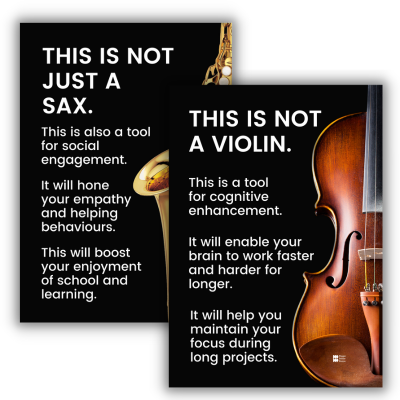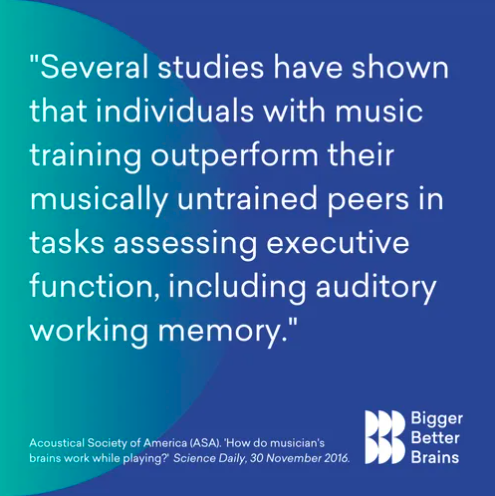Have you noticed that your music students excel in other areas?
A study featured on ScienceDaily delves into how musicians' brains handle multiple tasks while playing instruments, revealing intriguing insights into cognitive processes.
Hey music teacher!
Did you know that Bigger Better Brains creates advocacy tools to help you demonstrate the lasting value of music education?
Researchers, led by Eriko Aiba, discovered that musicians who excel at sight-reading and those who play by ear use different mental strategies.
Sight-readers focus on visual cues, while ear-players rely heavily on auditory memory, enabling them to learn and memorize music more efficiently.
One fascinating data point is how auditory memory allows musicians to recall music rapidly, even with minimal exposure.
This brain function may be key in developing personalized learning techniques, not only in music but also in areas like language learning, where auditory retention plays a pivotal role.
The brain's ability to juggle visual, auditory, and motor functions simultaneously highlights the unique mental agility of musicians.
These findings could transform educational approaches, suggesting that learning methods tailored to individual cognitive strengths—such as auditory versus visual processing—may boost learning outcomes. Musicians' impressive brain functions may provide a blueprint for enhancing memory retention and task coordination in broader educational contexts.





